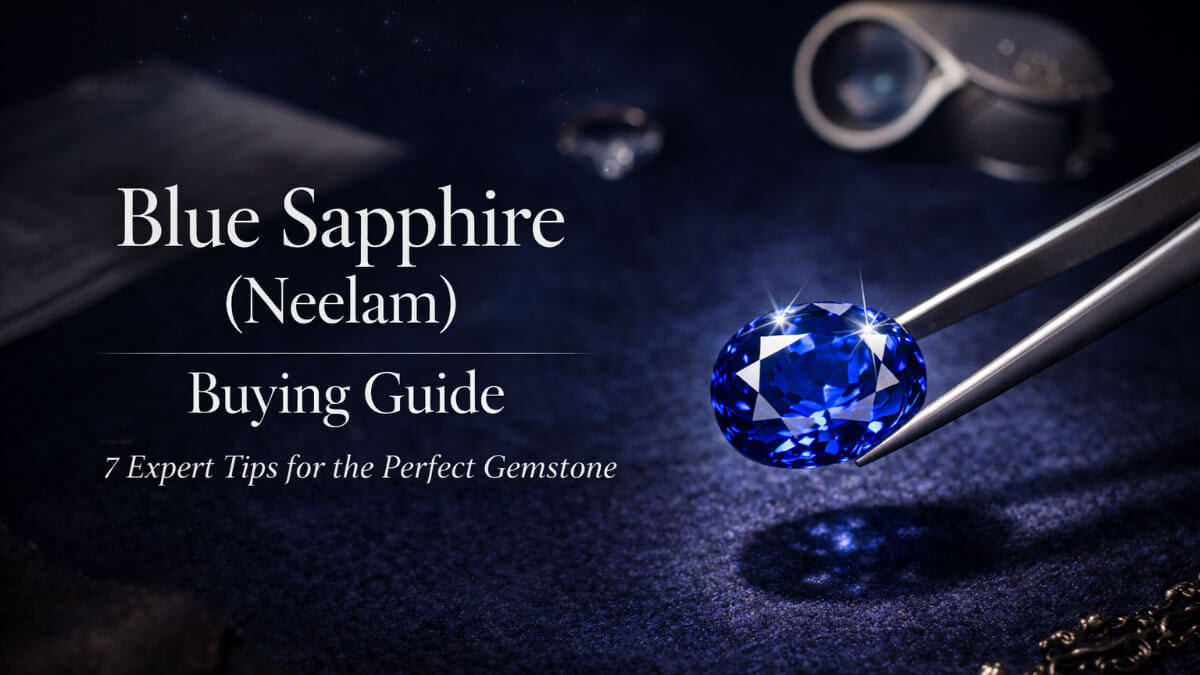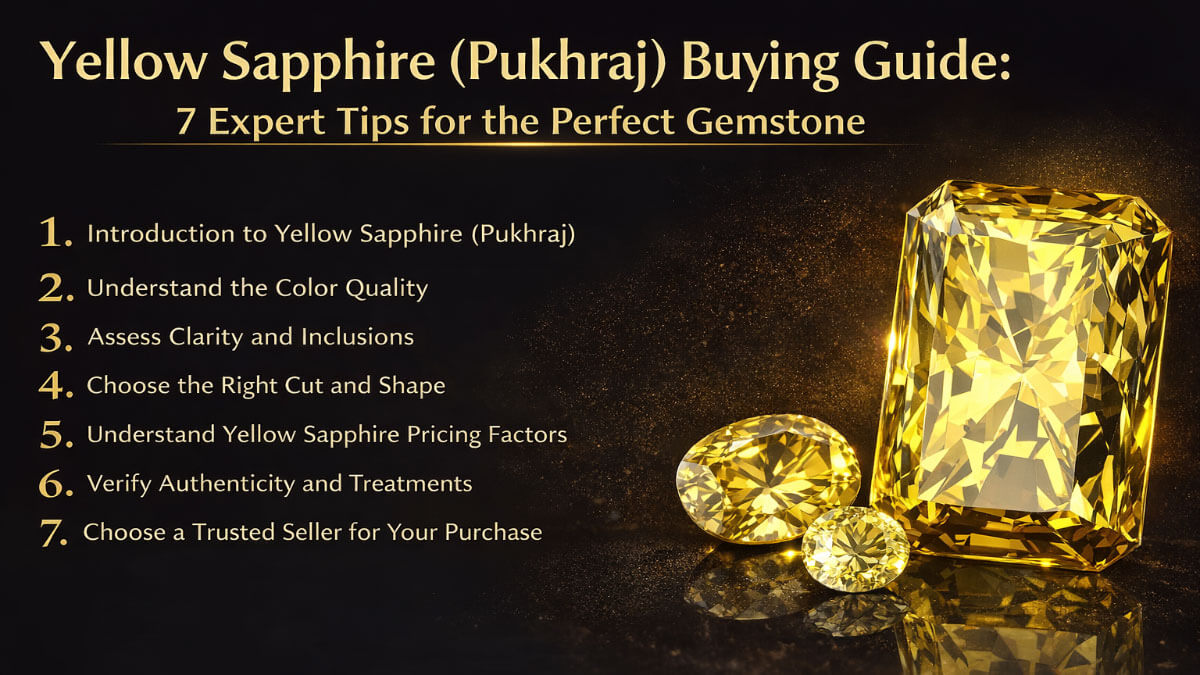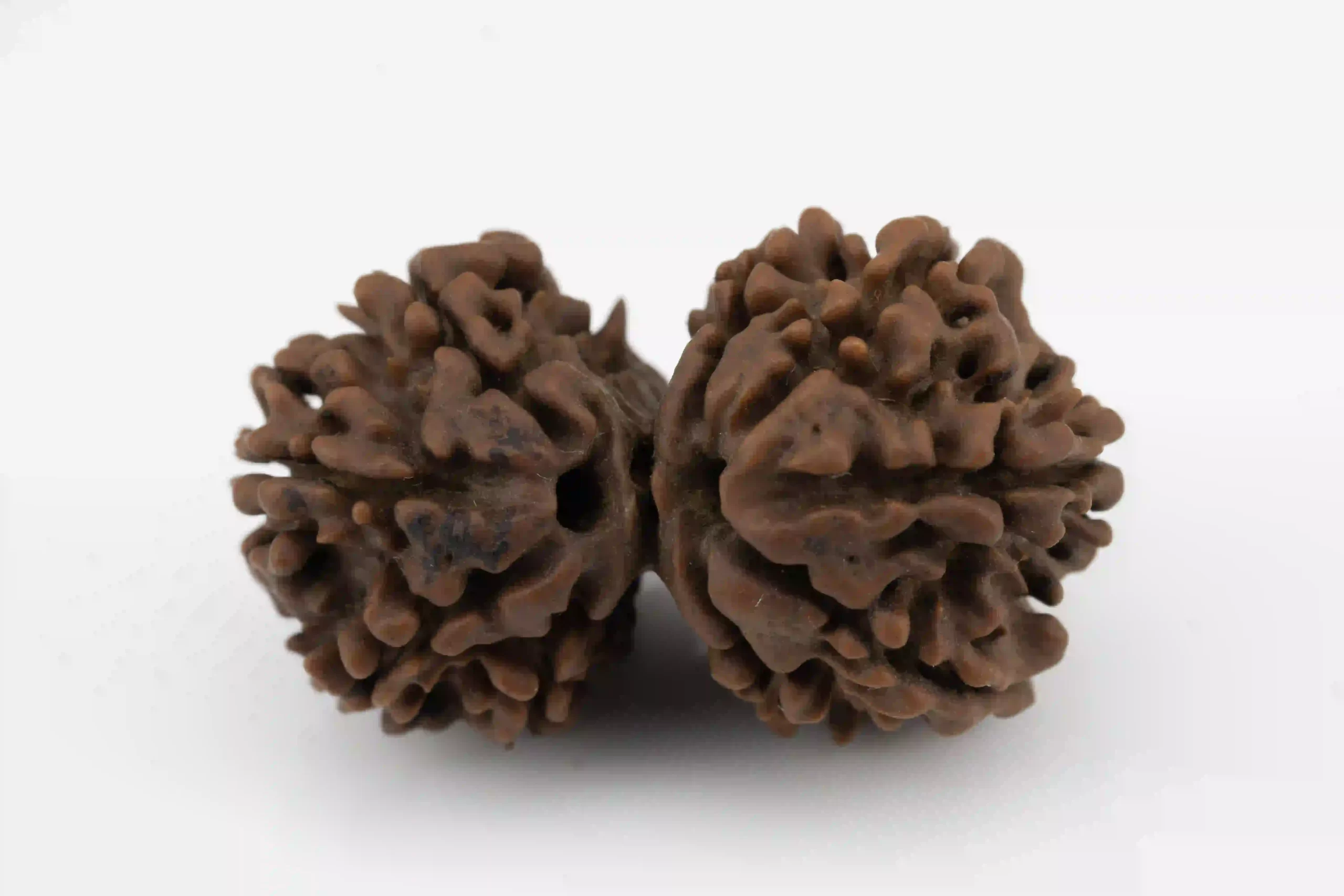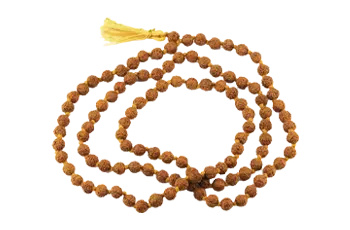Iolite (Kaka Neeli) Buying Guide: 7 Expert Tips for the Perfect Gemstone
Iolite, known in India as Kaka Neeli or simply Neeli, is a gemstone celebrated for its enchanting violet-blue hue and a remarkable optical property known as pleochroism. Often called the “Viking’s Compass,” it is as rich in lore as it is in color. As a powerful and affordable astrological substitute (Upratna) for Blue Sapphire (Neelam), Kaka Neeli is worn to harness the energies of Saturn (Shani). This expert guide provides in-depth knowledge on how to evaluate its unique color-shifting ability, assess its quality, and buy an authentic Iolite stone with complete confidence.


Iolite (Kaka Neeli) at a Glance
| Gemstone Family | Cordierite |
| Indian Name | Kaka Neeli, Neeli |
| Astrological Role | Upratna for Saturn (Shani) |
| Metaphysical Properties | Intuition, Clarity, Direction, Discipline |
| Hardness | 7 – 7.5 on the Mohs Scale (Good for jewelry) |
The Astrological Significance of Kaka Neeli and How to Wear It
In Vedic astrology, Iolite is a highly regarded Upratna for Blue Sapphire, used to appease the planet Saturn (Shani). It is worn to overcome financial hardships, improve discipline, and gain mental clarity.
Astrological Rules for Wearing an Iolite (Kaka Neeli)
| Who Should Wear It? | Recommended for individuals with a weak or malefic Saturn. Especially beneficial for Capricorn (Makar) and Aquarius (Kumbh) ascendants. |
| Which Finger? | The middle finger of the right (working) hand. |
| Best Metal? | Silver is the most recommended metal. |
| When to Wear? | On a Saturday evening, during the Shukla Paksha (waxing moon phase). |
| Energizing Ritual (Prana Pratishtha) | Before wearing, the ring should be cleansed in Gangajal or raw cow’s milk and energized by chanting the Shani mantra “Om Sham Shanicharaya Namah” (ॐ शं शनैश्चराय नमः) 108 times. |
How to Buy an Original Iolite Stone: A Step-by-Step Guide
Step 1: Understand Pleochroism – Iolite’s Signature Trait
The most fascinating characteristic of Iolite is its strong trichroism (a type of pleochroism). This means it shows three different colors when viewed from different angles.
Expert Insight: A skilled gem cutter will orient an Iolite to show its most desirable violet-blue color face-up. When you tilt the stone, you should be able to see the other colors—typically a pale yellow-gray or a light blue—from the sides. This color-shifting effect is the best indicator of a genuine Iolite.
Step 2: Evaluate the Color
The primary value of an Iolite comes from its main, face-up color. The most desirable stones exhibit a deep, saturated violet-blue, similar to a fine sapphire. Stones that are too dark, grayish, or have a weak color saturation are less valuable.
Step 3: Assess the Clarity
High-quality Iolite is typically a transparent and eye-clean gemstone. Because it is an affordable stone, there is little reason to purchase one with heavy, distracting inclusions. Look for a stone that is clean to the naked eye, as this will allow for maximum brilliance and unobstructed color.
Step 4: Examine the Cut and Shape
The cut is especially critical for Iolite. A well-executed cut will not only maximize the stone’s brilliance but will also be perfectly oriented to display the beautiful violet-blue color in the face-up position. Oval and emerald cuts are very popular for Iolite.
Step 5: Understand Pricing Factors
The iolite stone price is determined by its overall quality.
- Color: The intensity and saturation of the violet-blue color is the most important factor.
- Clarity: Eye-clean stones command the highest prices.
- Cut: A precise cut that properly orients the stone for the best color adds significant value.
- Carat Weight: The price per carat for Iolite increases for stones over 5 carats, as large, clean gems are less common.
Step 6: Verify Authenticity
Iolite is a natural gemstone that is rarely treated. The main concern is distinguishing it from imitations or other blue gems.
Crucial Information: The strong pleochroism is your best tool for identification. Glass or synthetic imitations will not show this distinct three-color shift. A certificate from a reputable lab is the only way to be 100% certain.
Step 7: Purchase from a Reputable Seller
Always buy from a trusted gemstone dealer who can explain the unique properties of Iolite, including its pleochroism. A reputable seller will provide a certificate and stand behind the authenticity of their stones.
Why Trust Ratna Gems™ for Your Iolite?
At Ratna Gems™, we are committed to providing authentic, high-quality astrological gemstones with complete transparency. We are your trusted source because we offer:
- Certified Authentic Iolite: Every Kaka Neeli stone is certified by a recognized lab and comes with a Lifetime Authenticity Guarantee.
- Transparent and Honest Pricing: We offer competitive prices for genuine Iolite with full disclosure on quality.
- Unmatched Customer Support: Our experts are here to guide you, and our 7-day return policy ensures your complete satisfaction.
Frequently Asked Questions
Is Iolite a good substitute for Blue Sapphire (Neelam)?
Yes, Iolite (Kaka Neeli) is considered the best and most effective Upratna (substitute gemstone) for Blue Sapphire. It provides the astrological benefits of Saturn (Shani) at a much more affordable price point.
What is the difference between Iolite and Tanzanite?
Both are beautiful violet-blue gemstones. The key difference is that Iolite is strongly pleochroic (showing different colors from different angles), while Tanzanite’s pleochroism is more subtle. Tanzanite is also much rarer and more expensive than Iolite.
Is Iolite suitable for daily wear?
Yes. With a hardness of 7 to 7.5 on the Mohs scale, Iolite is durable enough for most types of jewelry, including rings, as long as it is set in a protective mounting and treated with reasonable care.
How should I care for my Iolite jewelry?
Clean your Iolite with warm, soapy water and a soft brush. Avoid steam cleaners, ultrasonic cleaners, and sudden temperature changes. Store it separately to prevent scratches.







